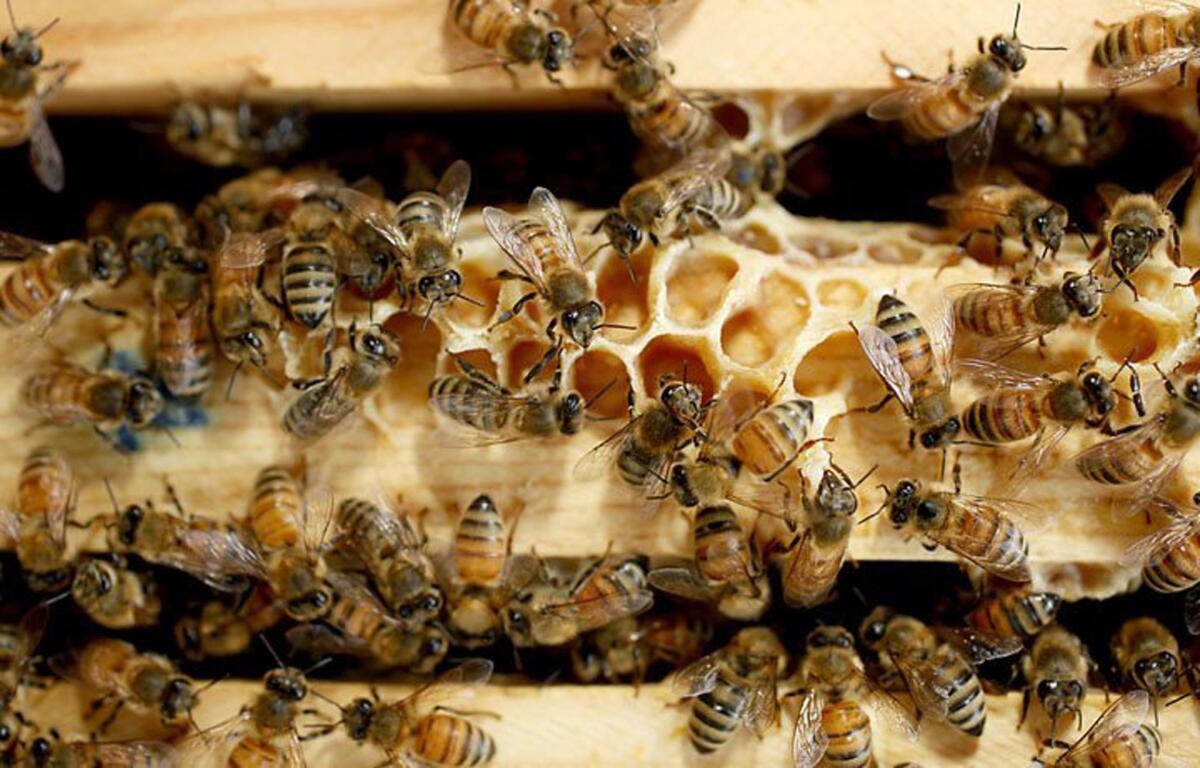Study: Pesticide used on ‘bee-friendly’ plants may hurt bees

- Share via
Reporting from Washington — Many plants being marketed in nurseries and garden centers as beneficial to bees have been treated with an insecticide some scientists believe to be harmful to bee colonies, according to a study made public Wednesday by an environmental group.
The study by Friends of the Earth found that plants sprayed with so-called neonicotinoid insecticides may actually be contributing to the decline in bee populations seen in recent years.
Samples from 36 out of 71 plants, including some labeled “bee-friendly,” contained neonicotinoids, a chemical that several recent studies have linked to the massive decline in bee populations, Friends of the Earth said.
“Our data indicate that many plants sold in nurseries and garden stores across the U.S. and Canada are being pre-treated with systemic neonicotinoid insecticides, making them potentially toxic to pollinators,” Timothy Brown, an associate scientist at the Pesticide Research Institute and co-author of the report, said in a statement.
Recent studies, including one in May by the Harvard School of Public Health, have linked neonicotinoids to colony collapse disorder, a condition in which bees abandon their hives and die, the study said.
Makers of the insecticide dispute that there is a connection between neonicotinoids and the decline in bee populations.
“There have been more than 100 studies investigating these products and pollinators showing that under conditions of practical field use, neonicotinoids are not harmful to bee colonies,” said David Fischer, a scientist with Bayer CropScience.
Fischer attributes the decline in bee colonies to the parasitic varroa mite and other associated diseases.
Bees play a key role in pollinating fruit, nuts and vegetables and are crucial to the nation’s food supply, experts say.
Release of the study, which assessed garden samples from 18 cities in the United States and Canada, comes just five days after the White House announced it was forming a task force of various federal agencies to make recommendations for reversing the decline in honeybee and other pollinator populations.
Since 2006, commercial beekeepers in the United States have seen honeybee colony loss rates increase to an average of 30% each winter, compared with historical rates of 10% to 15%, the White House said in a statement.
Lisa Archer, director of the Food and Technology Program at Friends of the Earth U.S., said many gardeners are aware of the bee crisis and will purchase plants labeled “bee-friendly,” not knowing the plants contain neonicotinoid insecticides, also known as neonics.
The chemicals first gained popularity in the 1990s, according to the U.S. Department of Agriculture. They were thought to be less toxic to honeybees compared with other insecticides and were sold as a preventative treatment in more than 140 crops, including corn, wheat and soy.
Bees exposed to neonics have experienced diminished fertility and weaker immune systems, among other adverse symptoms, the study found.
The loss of bee colonies could have long-term economic implications. According to a report published by the Bee Informed Partnership, 23.2% of bee colonies died this past winter. In last week’s White House Memorandum, President Obama indicated that honeybee pollination added an additional $15 billion in value to crops every year.
More to Read
Sign up for Essential California
The most important California stories and recommendations in your inbox every morning.
You may occasionally receive promotional content from the Los Angeles Times.










